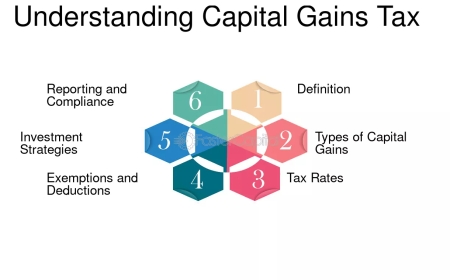How to Invest in Index Funds for Beginners

Investing in index funds is a great way for beginners to start their investment journey. Index funds are a type of investment that allows you to diversify your portfolio by pooling your money with others to invest in a variety of assets, such as stocks, bonds, or commodities. By investing in an index fund, you are essentially buying a small piece of the entire market, rather than trying to pick individual stocks or bonds. This can be a great way to reduce your risk and increase your potential returns over the long term.
One of the main benefits of index funds is that they are a low-cost way to invest. Unlike actively managed funds, which charge high fees to cover the costs of research and management, index funds are typically very low-cost. This is because they are designed to track a particular market index, such as the S&P 500, rather than trying to beat it. As a result, index funds often have lower fees than actively managed funds, which can save you money over time.
Another benefit of index funds is that they are a great way to diversify your portfolio. By investing in a variety of assets, you can reduce your risk and increase your potential returns. For example, if you invest in a stock index fund, you will be investing in a broad range of stocks, rather than just a few individual stocks. This can help to reduce your risk, as the performance of one stock will not have a significant impact on your overall portfolio. Additionally, index funds can provide a way to invest in a variety of asset classes, such as bonds or commodities, which can help to further diversify your portfolio.
To get started with investing in index funds, you will need to open a brokerage account. This can typically be done online, and will require you to provide some personal and financial information. Once your account is open, you can begin to research and select the index funds that you want to invest in. There are many different index funds available, so it's a good idea to do some research and compare the different options before making a decision.
When selecting an index fund, there are a few things to consider. First, you will want to consider the fees associated with the fund. As mentioned earlier, index funds are typically very low-cost, but some may have higher fees than others. You will also want to consider the underlying assets of the fund, as well as its track record and performance. Additionally, you may want to consider the tax implications of the fund, as some index funds may be more tax-efficient than others.
Once you have selected the index funds that you want to invest in, you can begin to set up a investment plan. This can involve setting a budget and determining how much you want to invest on a regular basis. You may also want to consider setting up a dollar-cost averaging plan, which involves investing a fixed amount of money at regular intervals, regardless of the market's performance. This can help to reduce the impact of market volatility on your investments.
It's also a good idea to educate yourself on the different types of index funds available. For example, you may want to consider investing in a total stock market index fund, which tracks the performance of the entire US stock market. Alternatively, you may want to consider investing in an international index fund, which tracks the performance of stocks in other countries. You may also want to consider investing in a bond index fund, which tracks the performance of a particular bond market.
In addition to educating yourself on the different types of index funds, you may also want to consider consulting with a financial advisor. A financial advisor can provide you with personalized advice and help you to create a investment plan that is tailored to your individual needs and goals. They can also help you to navigate the different investment options available and provide you with guidance on how to manage your investments over time.
One of the key benefits of investing in index funds is that they are a relatively straightforward investment option. Unlike other investment options, such as individual stocks or actively managed funds, index funds are designed to be easy to understand and invest in. This can make them a great option for beginners, as they can provide a simple and straightforward way to get started with investing.
Overall, investing in index funds can be a great way for beginners to start their investment journey. By providing a low-cost and diversified way to invest, index funds can help to reduce your risk and increase your potential returns over the long term. With a little research and planning, you can get started with investing in index funds and begin to build a strong investment portfolio.
As you continue to invest in index funds, it's a good idea to regularly review and adjust your investment portfolio. This can involve rebalancing your portfolio to ensure that it remains aligned with your investment goals and risk tolerance. You may also want to consider tax-loss harvesting, which involves selling securities that have declined in value and using the losses to offset gains from other investments. By regularly reviewing and adjusting your portfolio, you can help to ensure that it remains on track to meet your long-term investment goals.
In conclusion, investing in index funds is a great way for beginners to start their investment journey. With their low costs, diversification benefits, and straightforward investment approach, index funds can provide a solid foundation for a long-term investment portfolio. By doing your research, setting a budget, and regularly reviewing and adjusting your portfolio, you can help to ensure that your investments are working effectively for you over time.


















